Did you know that lavender oil is relaxing and can help with pain management during labor? Is also widely recognized for its anti-inflammatory properties according to NLM, which can be beneficial during labor and postpartum.
Essential oils have become a go-to for moms seeking natural support during pregnancy, labor, and postpartum recovery.
From calming nerves during labor to soothing postpartum aches, these oils are a must-have for your birthing toolkit.
This article will explore the top 7 Essential Oils for Labor, Birth, and Postpartum: Real Moms’ Favorites and how to use them safely and effectively.
Top 7 Essential Oils for Labor, Birth, and How They Work
Essential oils became my secret weapon during labor. At first, I was skeptical, but I quickly saw how they helped with relaxation, focus, and pain relief.
Lavender and clary sage kept me calm, while citrus oils gave me a boost of energy when things got tough.
I loved how easy they were to use—whether in a diffuser, through a massage, or just inhaling them. They really added comfort and support during such an intense experience.
Here are seven standout essential oils that made all the difference for plenty of moms including myself during labor, along with their unique benefits and how they work.
1. Lavender Oil: Reducing Stress and Promoting Relaxation
Lavender oil is a favorite among moms for its soothing properties. Known for reducing stress and anxiety, it creates a calming atmosphere during labor.
Whether diffused in the room or added to massage oil, lavender oil helps lower cortisol levels(a hormone produced in response to stress and helps regulate various functions, including metabolism, immune response, and blood sugar levels) and promotes a sense of peace, making contractions feel more manageable.
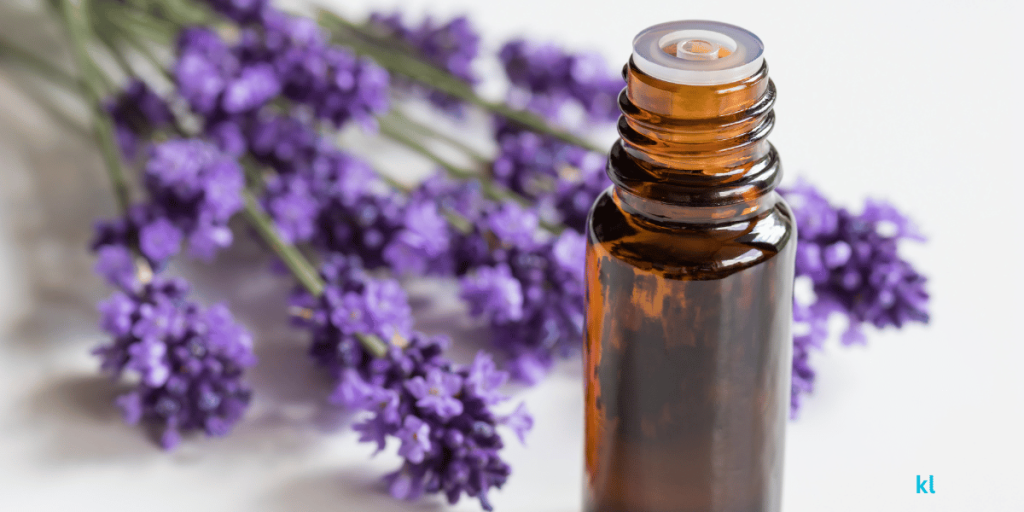
2. Clary Sage Oil: Stimulating Contractions and Easing Tension
When it comes to encouraging contractions, clary sage oil is a game-changer. Its natural properties act as a gentle contraction booster, making it ideal during active labor.
Clary sage oil is often used to support contractions, and it works best when massaged onto the lower back or used in a compress.
Additionally, clary sage is believed to help induce labor by stimulating uterine contractions, but be sure to use it only after consulting with your healthcare provider.

3. Peppermint Oil: Relieving Nausea and Boosting Energy
Labor can bring unexpected nausea, and peppermint oil is perfect for quick relief. A few drops on a tissue or in a diffuser can help ease queasiness.
Plus, its invigorating scent offers a natural energy boost during those long hours of labor.
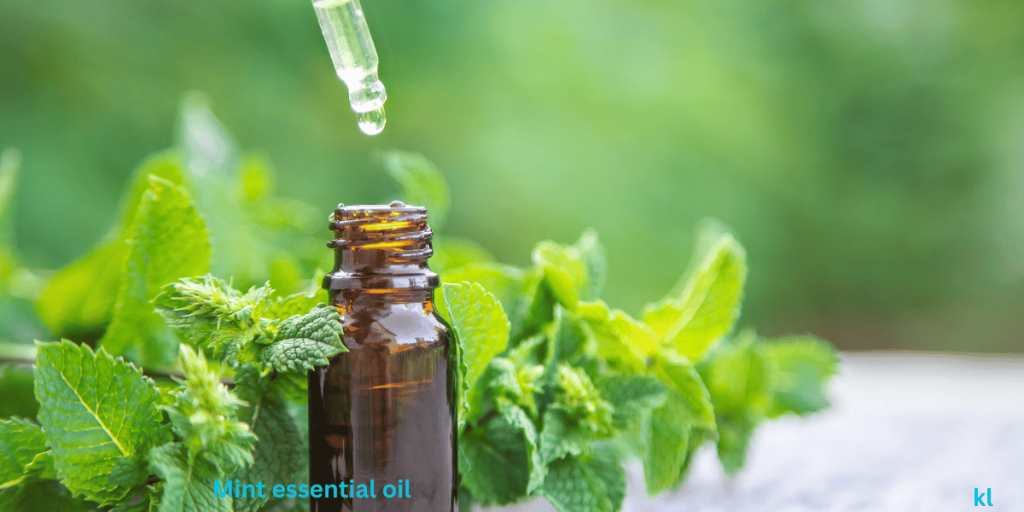
4. Jasmine Oil: Enhancing Focus and Reducing Labor Pain
Jasmine oil is often associated with empowering birth experiences. Known for its ability to reduce labor pain and enhance focus, it can be massaged onto the skin or inhaled during contractions.
Moms often describe jasmine oil for labor pain as their go-to for feeling grounded and in control.
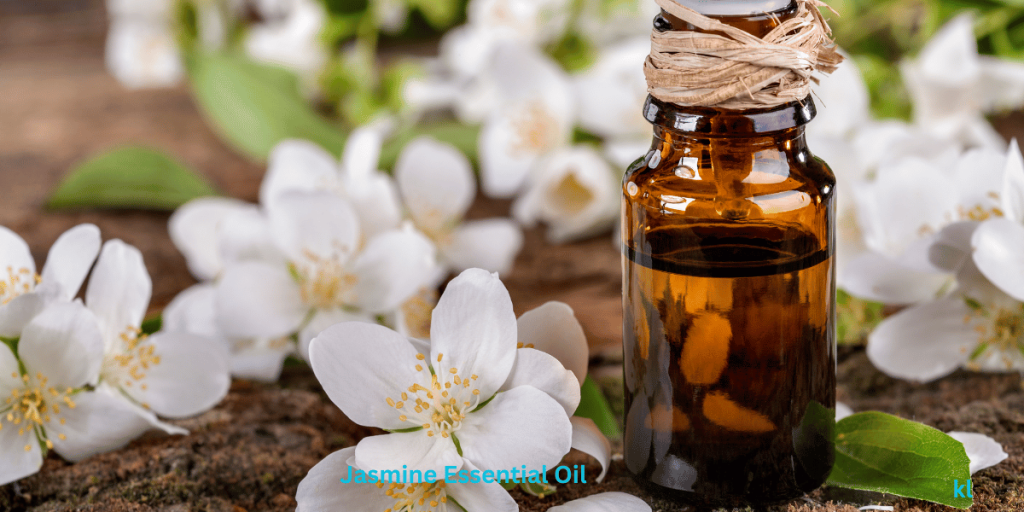
5. Frankincense Oil: Supporting Grounding and Deep Breathing
Frankincense is a labor essential for its grounding properties. It’s especially effective during deep breathing exercises, helping to calm the mind and promote focus.
Diffusing frankincense for labor support can create a serene environment, ideal for maintaining composure during intense moments.
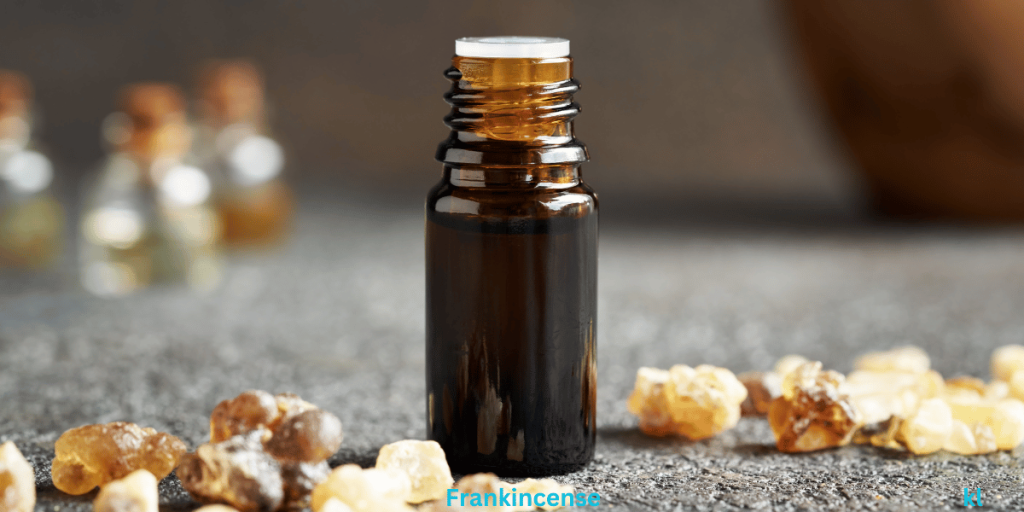
6. Chamomile Oil: Easing Irritability and Calming the Mind
Chamomile oil is a gentle option that works wonders for easing irritability and anxiety. Its calming scent can soothe frazzled nerves and promote emotional balance, especially during early labor.
Chamomile oil for recovery is also popular for its post-labor benefits, aiding in relaxation and sleep.

7. Rose Oil: Promoting a Sense of Comfort and Emotional Support
Known as the oil of love, rose oil helps create a sense of comfort and emotional warmth. It’s ideal for moms who feel overwhelmed or disconnected during labor.
Just a few drops can uplift your mood and remind you of the beauty of the process.
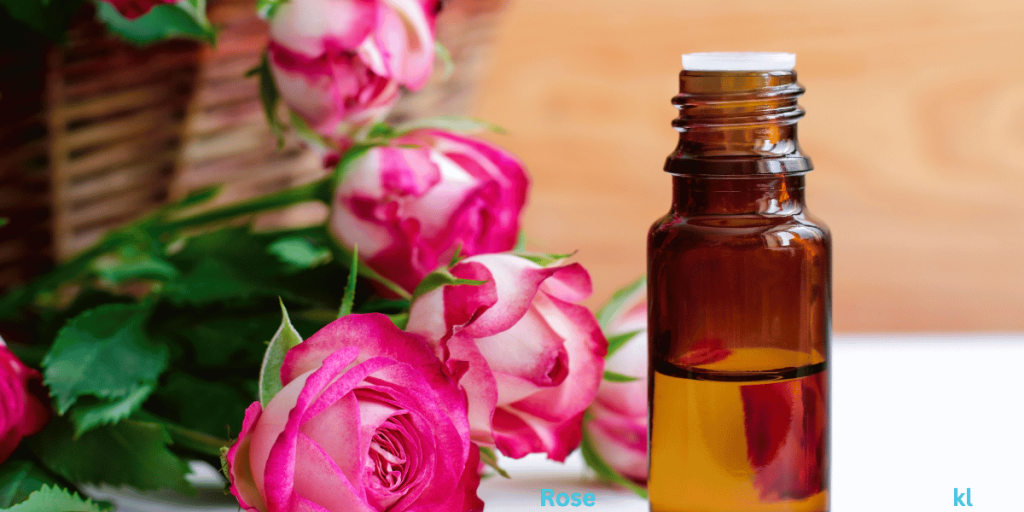
Tips for Using Essential Oils During Labor and Birth:
- Always use therapeutic-grade essential oils for safety and effectiveness.
- Dilute oils with carrier oil (like coconut, jojoba, or almond) to avoid skin irritation.
- Focus on inhalation or gentle massage, and avoid direct application to sensitive areas.
- Consult your healthcare provider or a certified aromatherapist for personalized advice.
From lavender’s calming touch to clary sage’s contraction-boosting power, these essential oils can transform your labor experience into something more empowering and serene as they did for me.
Safe Usage of Essential Oils During Labor and Birth
When it comes to using essential oils during labor, safety is key. While these natural remedies can offer incredible benefits like stress relief and emotional support, they must be used correctly to ensure both you and your baby remain safe.
Here’s everything you need to know about safe usage, including dilution tips, delivery room strategies, and oils to avoid.
Dilution Guidelines for Safe Application
Essential oils are highly concentrated, and proper dilution is crucial to prevent skin irritation or adverse reactions. Here’s a general guideline:
- Topical Use: Mix 1-2 drops of essential oil with 1 tablespoon of carrier oil, such as coconut, almond, or jojoba oil. This ratio ensures the oil remains gentle on your skin.
- Massage Blends: Combine 5-6 drops of your chosen oil with 2 tablespoons of carrier oil for a calming massage on the lower back, feet, or shoulders during labor.
- Test First: Always perform a patch test on your inner wrist or forearm before using any oil on larger areas.
Tips for Diffusing Essential Oils in the Delivery Room
Diffusion is one of the safest ways to benefit from essential oils during labor. Here are some practical tips:
- Bring a Portable Diffuser: Many hospitals and birthing centers allow small diffusers. Use them to create a calming atmosphere in your room.
- Start Small: Use 2-3 drops of your chosen oil to avoid overwhelming the space. Adjust based on your comfort level.
- Stick to Soothing Scents: Lavender and chamomile are excellent labor stress relief oils. They promote relaxation and help reduce anxiety.
- Alternate Oils: Switch to invigorating oils like peppermint or citrus during moments of fatigue or low energy.
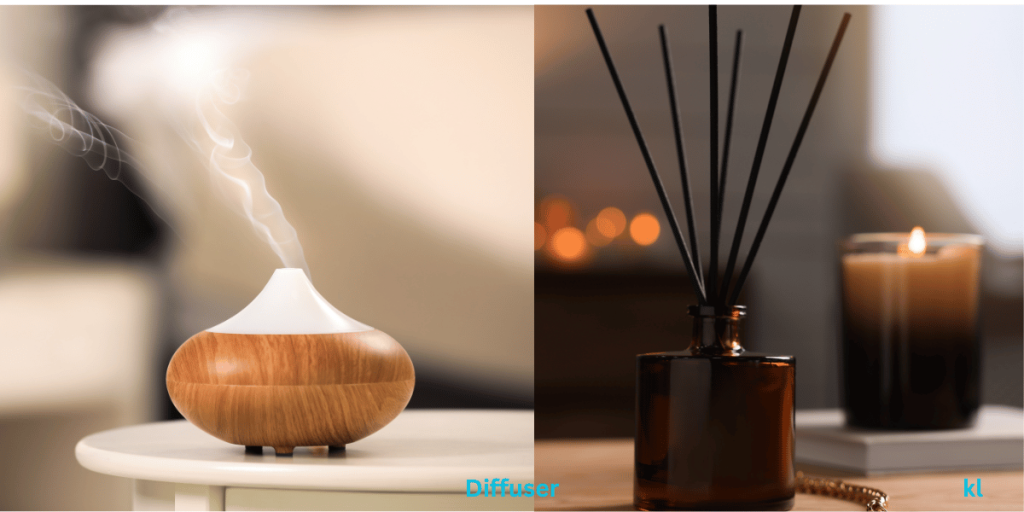
Oils to Avoid During Pregnancy and Labor
While many oils are safe, some can cause complications and should be avoided. These include:
- Clary Sage (Before Full-Term): Although it’s great for stimulating contractions during labor, using it too early can cause premature labor.
- Cinnamon and Thyme: These oils can irritate the skin and overstimulate the body.
- Wintergreen and Birch: Both contain methyl salicylate, which may interfere with blood clotting.
- Rosemary: Known to increase blood pressure, it’s best to steer clear if you have hypertension.
By following these safety tips and choosing safe oils for pregnancy, you can enjoy their natural benefits with confidence.
Postpartum Recovery with Essential Oils
Recovering after childbirth is a journey that requires nurturing both your body and mind. Essential oils can be a wonderful addition to your postpartum care routine, offering relief from physical discomfort, promoting emotional balance, and aiding in overall recovery. Here’s how to incorporate these natural remedies effectively.
Soothing Sore Muscles and Perineal Discomfort
Childbirth can leave you feeling tender and sore, especially around the perineal area. Essential oils like lavender and frankincense are popular choices for their anti-inflammatory and healing properties. Here’s how to use them:
- Perineal Sprays: Combine 3 drops of lavender oil with 2 drops of frankincense in a small spray bottle filled with distilled water. Spray onto a pad or directly onto the perineal area for instant relief.
- Sitz Baths: Add 5 drops of chamomile oil to a warm sitz bath to ease swelling and discomfort.
Oils for Emotional Balance and Reducing Postpartum Blues
The postpartum period often comes with fluctuating hormones, which can lead to emotional highs and lows. Essential oils like rose, bergamot, and ylang-ylang can uplift your mood and promote emotional stability:
- Aromatherapy Diffusion: Add 5 drops of bergamot oil to a diffuser during moments of stress or fatigue to create a calming environment. If you’re using a standard ultrasonic diffuser, you would fill the water reservoir with the recommended amount of water (usually around 100-200 ml), then add 5 drops of bergamot oil to it.
- Massage Blends: Mix 3 drops of rose oil with 1 tablespoon of carrier oil like sweet almond, jojoba, or coconut for a gentle abdominal massage, for relaxation and hormonal balance.
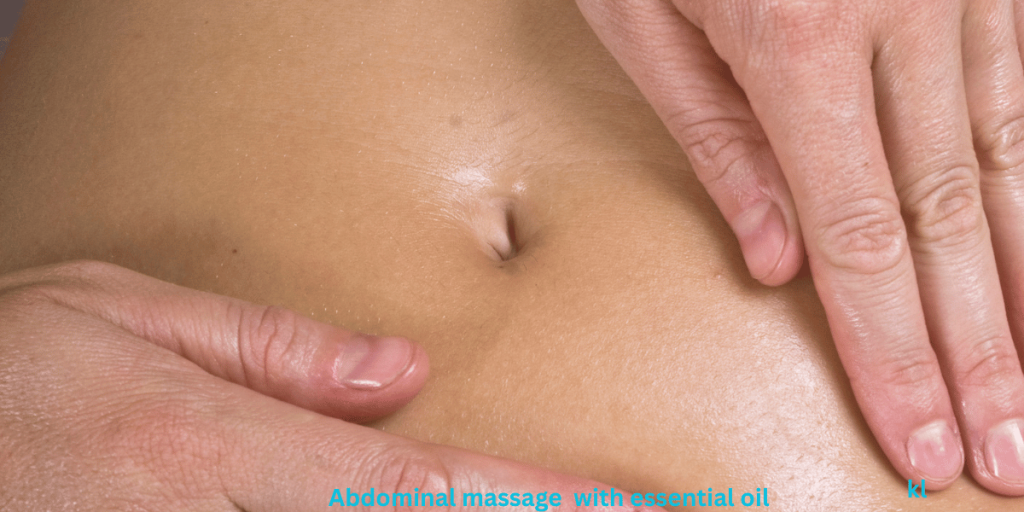
Creating DIY Healing Blends for Postpartum Care
Making your own postpartum blends lets you customize the oils to fit your needs, like easing sore muscles, lifting your mood, or helping you relax.
For example, I loved creating a calming lavender and chamomile blend for those stressful days and a refreshing citrus mix to uplift my energy during sleepless nights. It’s such a rewarding way to nurture yourself!”Some ideas include:
- Healing Balm: Blend shea butter, 5 drops of lavender oil, and 5 drops of chamomile oil for a natural balm to soothe cracked skin or minor irritations.
- Uplifting Roller Blend: Combine 10 drops of frankincense, 8 drops of clary sage, and 7 drops of ylang-ylang (which totals 25 drops), you would fill the rest of the roller bottle (about 5ml) with carrier oil assuming the roller bottle is 10ml in size.
To use your Uplifting Roller Blend, gently roll it onto your pulse points—such as your wrists, behind your ears, or the sides of your neck—whenever you need a quick mood boost.
For a deeper effect, apply it to the palms of your hands, rub them together, and take a few slow, deep breaths to enjoy the uplifting aroma. It’s perfect to carry in your bag for on-the-go emotional support!
- Refreshing Citrus Energy Blend: In another 10ml roller bottle, mix: 6 drops of sweet orange essential oil,5 drops of grapefruit essential oil, and 4 drops of lemon essential oil.
Top it off with carrier oil. Apply to your pulse points or inhale deeply for an instant pick-me-up during those sleepless nights.
By using the best oils for postpartum healing, you can create a comforting and supportive environment during recovery.
Whether it’s through DIY postpartum oil blends or gentle perineal care with essential oils, these remedies can make the postpartum period a little smoother, helping you feel more balanced and cared for.

Real Moms Share Their Experiences
There’s something so comforting about hearing stories from moms who’ve been through the labor and postpartum journey.
When it comes to using essential oils, real-life testimonials offer incredible insight into what works, and what doesn’t, and how these natural remedies can transform the experience. Here are a few inspiring stories and lessons from moms who swear by their essential oil blends.
Managing Labor Pain with Essential Oils
Many moms have turned to labor pain relief essential oils for natural support during contractions. For instance, Sarah, a first-time mom, shares how clary sage oil became her go-to during active labor:
I was skeptical at first, but my doula suggested I try clary sage during contractions. She added a few drops to a warm compress and placed it on my lower back—it was a game changer! The scent alone calmed my nerves, and it felt like the tension in my back eased up immediately
Similarly, Jenna, who had a natural home birth, found that lavender oil diffused in the room helped create a peaceful environment.
I was able to stay focused and calm throughout the process. Every deep breath I took felt like it was infused with relaxation. I honestly don’t know how I would’ve managed without it
Postpartum Recovery Made Easier with Essential Oil Blends
The postpartum period can be overwhelming, but essential oil blends for moms have helped many recover physically and emotionally including myself. My DIY Citrus Energy Blend did the magic during those sleepless nights.
Take Maria, for example, who crafted her blend of lavender, chamomile, and frankincense oils for perineal care:
After my third baby, I made a spray with these oils diluted in witch hazel. Every time I used it, I felt instant relief from soreness. It made those first few weeks so much more bearable
On the emotional side, relaxing essential oils for birth and beyond have helped moms combat the baby blues. Emily, a mother of twins, shares:
Postpartum hit me hard. I started diffusing a mix of rose and bergamot oils daily, and it helped balance my emotions. It didn’t solve everything, but it gave me a moment of peace during a chaotic time
Relaxation Techniques Shared by Moms
For moms preparing for birth, relaxing with essential oils is often part of their routine. Jessica shared how she practiced deep breathing exercises with jasmine oil leading up to her due date:
Every evening, I’d rub jasmine oil onto my pulse points and just focus on my breathing. It not only helped me relax but also got me into a mindset of welcoming the birth process.”

Lessons Learned
From these testimonials, one thing is clear: essential oils can be incredibly effective when used safely and thoughtfully.
Every mom’s journey is unique, but hearing these stories offers encouragement and practical tips for incorporating oils into your own labor and recovery plan.
Whether it’s labor pain relief essential oils, DIY recovery blends, or simply diffusing relaxing scents, these natural remedies can make a big difference. What’s your favorite essential oil story? Let us know in the comments!
Building Your Essential Oil Toolkit
If you’re ready to embrace essential oils for labor, birth, and postpartum, having a well-prepared toolkit is key. From choosing the right oils to ensuring you have the necessary accessories, setting yourself up for success is all about planning and quality. Here’s a guide to building your essential oil toolkit like a pro!
Essential Oil Blends vs. Single Oils: What’s Best?
When deciding between therapeutic-grade essential oils and blends, consider your specific needs. Single oils like lavender and clary sage offer targeted benefits—lavender for relaxation, and clary sage for contractions.
Essential oil blends for moms are pre-mixed combinations designed for labor, pain relief, or emotional balance.
For example:
- A labor blend might include clary sage, jasmine, and chamomile to promote calm and support contractions.
- A postpartum recovery blend often includes frankincense, rose, and lavender to soothe soreness and support emotional well-being.
Blends save time and effort, but single oils allow for more customization. If you’re new, starting with blends from trusted essential oil brands can be a safe and effective option.
Must-Have Accessories for Your Toolkit
To get the most out of your oils, invest in these essential accessories:
- Diffusers: Perfect for creating a calming atmosphere during labor or postpartum. Choose one with adjustable mist settings for versatility.
- Roller Bottles: These make it easy to apply diluted oils on the go. Opt for dark glass bottles to preserve oil quality.
- Carrier Oils: Essential for diluting therapeutic-grade oils to ensure safety during pregnancy and postpartum. Coconut oil, jojoba, and sweet almond oil are popular choices.
With the right toolkit, you’ll feel confident and ready to incorporate essential oils into your labor and postpartum journey.
Expert Tips for Choosing High-Quality Essential Oils
Selecting the best essential oils can feel overwhelming, especially when you’re focused on safety during pregnancy or postpartum recovery.
Here’s how to identify pure, therapeutic-grade essential oils, avoid low-quality products, and choose trusted essential oil brands recommended by experts like doulas and midwives.
How to Identify Pure, Therapeutic-Grade Oils
Quality oils are all about purity. Therapeutic-grade essential oils are free from additives, fillers, and synthetic compounds. To ensure you’re getting the real deal, check for:
- Clear Labeling: Look for the botanical name (e.g., Lavandula angustifolia for lavender), origin, and extraction method. These details indicate transparency.
- Testing Certifications: Brands offering GC/MS (Gas Chromatography-Mass Spectrometry) reports show their oils have been tested for purity and potency.
- Packaging: High-quality oils are always stored in dark glass bottles to protect against light and heat damage.
- Scent: A therapeutic-grade oil should have a natural aroma. If it smells artificial or overly strong, it’s a red flag.
Red Flags to Avoid When Shopping for Essential Oils
Not all essential oils are created equal. Avoid these common pitfalls to protect yourself from substandard or unsafe products:
- “Fragrance Oils”: These are often synthetic and unsuitable for therapeutic use, especially during pregnancy.
- Suspiciously Low Prices: Pure essential oils require careful extraction, which can be costly. If a price seems too good to be true, it likely is.
- Lack of Transparency: Brands that don’t provide testing information or hide their sourcing practices are best avoided.
Trusted Essential Oil Brands Recommended by Doulas and Midwives
Experts like doulas and midwives often have firsthand experience with the best brands. Some highly recommended trusted essential oil brands include:
- doTERRA: Known for rigorous testing and sustainable sourcing, doTERRA offers therapeutic-grade oils that are popular for labor and postpartum recovery.
- Young Living: A pioneer in essential oils, this brand provides Seed-to-Seal certified products with reliable quality.
- Plant Therapy: An affordable option for therapeutic-grade oils, Plant Therapy offers safety guidelines, especially for pregnancy and children.
- Edens Garden: Known for its commitment to quality and ethical sourcing, Edens Garden is another excellent choice.
Essential oils are a natural and effective way to support your journey through labor, birth, and postpartum recovery.
By incorporating these seven oils into your birthing plan, you can create a calm, empowered, and balanced experience. Ready to start? Begin with one or two oils and discover the difference they can make!
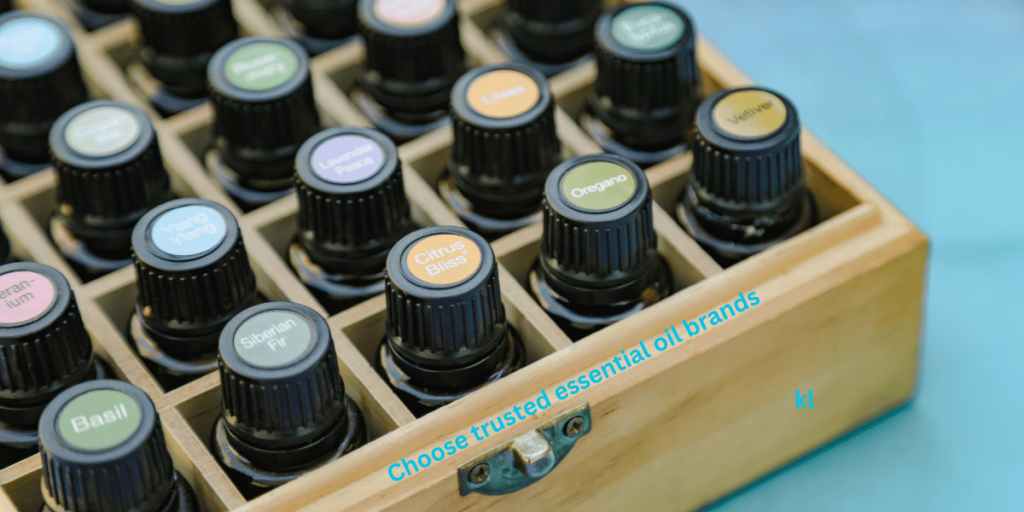
FAQ
When In Pregnancy Can I Use Essential Oil?
Essential oils can be used during pregnancy, but it’s important to use them safely and at the right time. Here’s a general guideline for using essential oils during different stages of pregnancy:
First Trimester (Weeks 1–12):
- Caution: The first trimester is a sensitive time, so it’s best to avoid most essential oils, especially those that can stimulate the uterus or affect hormones.
- Safe oils: Lavender, chamomile, and peppermint can generally be used in small amounts to help with nausea, fatigue, and mood swings, that come with morning sickness but always consult with your healthcare provider first.
- Avoid: Essential oils like clary sage, rosemary, and basil, as they are known to potentially stimulate contractions or affect hormonal balance.
Second Trimester (Weeks 13–26):
- More Flexibility: This is generally the safest time to use essential oils. The risk of miscarriage is lower, and many women find essential oils help with discomforts like swelling, back pain, or anxiety.
- Safe oils: Lavender, citrus oils (like lemon or sweet orange), ginger, peppermint, and frankincense can help with energy, relaxation, or nausea.
- Avoid: Strong oils like cinnamon or thyme, which can irritate the skin or potentially trigger contractions.
Third Trimester (Weeks 27–40):
- Labor Support: Essential oils can be very beneficial in the third trimester for relaxation, pain relief, and preparation for labor and birth.
- Safe oils: Lavender, clary sage, Jasmine, and frankincense are often used for stress relief, promoting sleep, and helping with physical discomforts.
- Avoid: Oils that are known uterine stimulants (like clary sage before 37 weeks) and those with strong scents that could cause nausea.
General Tips for Safe Use:
- Dilution is key: Always dilute essential oils with a carrier oil (like coconut or almond oil) before applying them to your skin.
- Inhalation: Diffusing essential oils or inhaling them directly from a cotton ball or tissue is generally safer than topical application.
- Consult your provider: Always check with your healthcare provider before using essential oils, especially if you have any health conditions or concerns during pregnancy.
By following these guidelines, essential oils can be a helpful and natural way to support your pregnancy journey.







